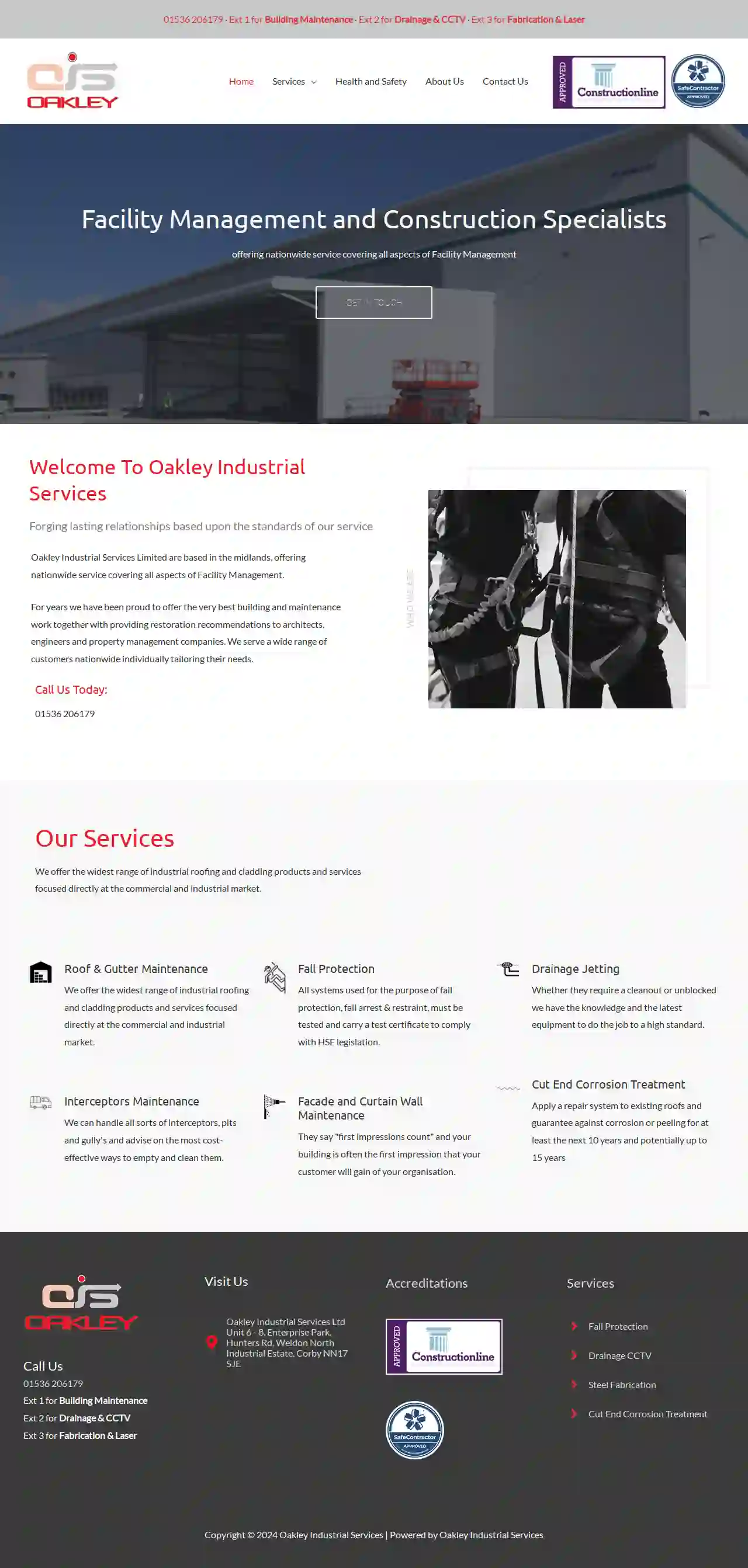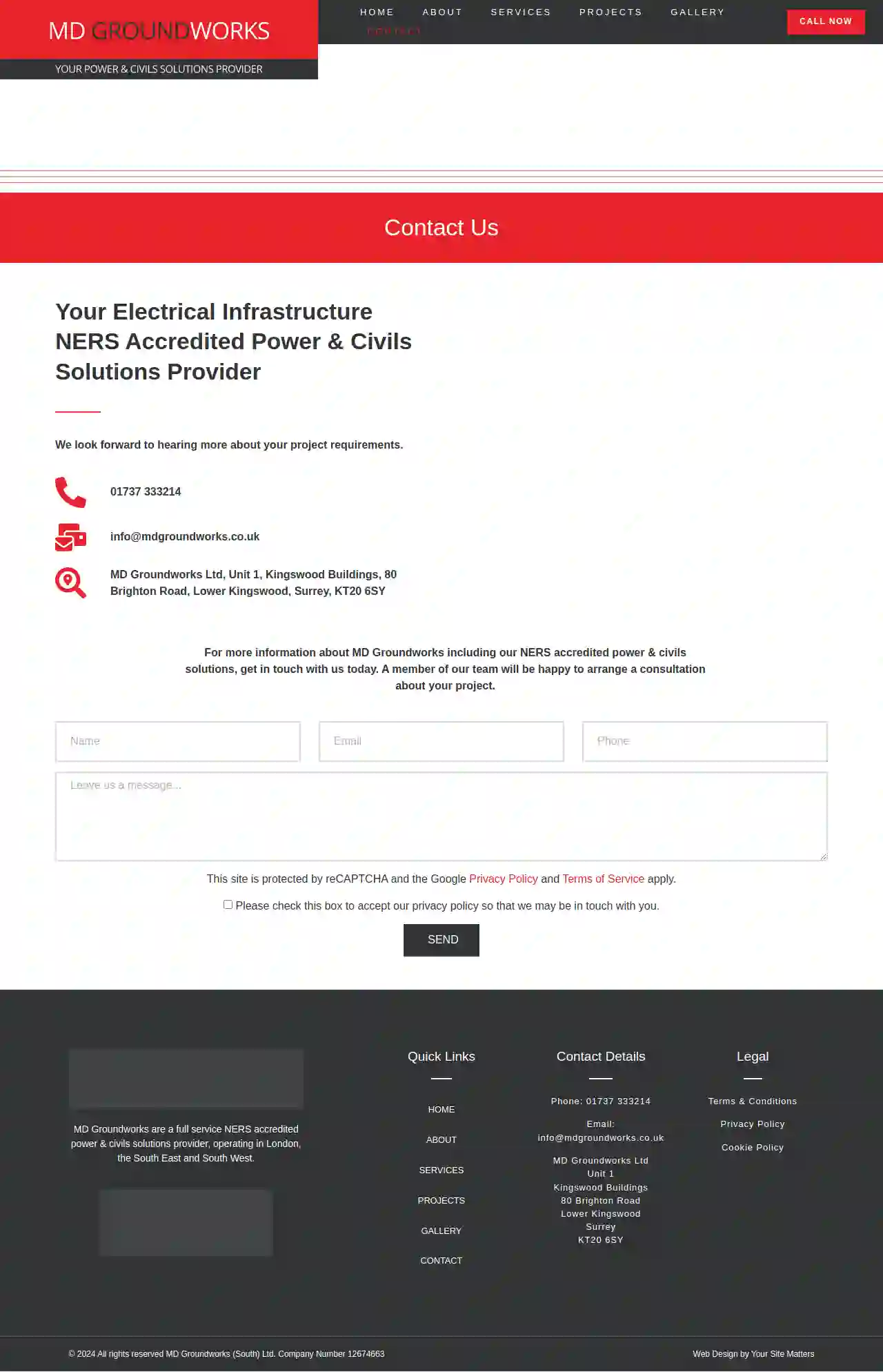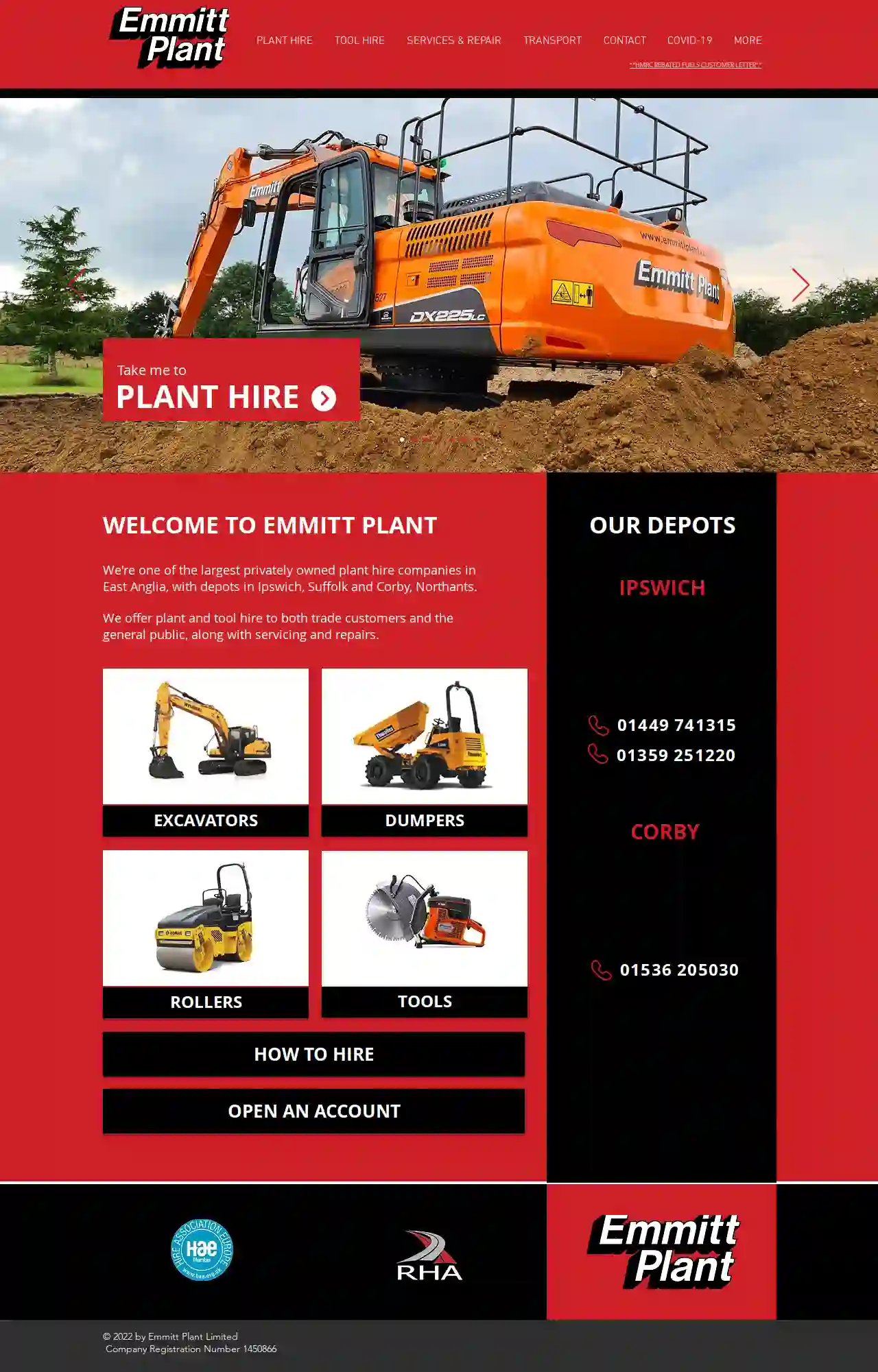Excavation Contractors Chipping Sodbury
Find top Excavation Services in Chipping Sodbury
Get 3 FREE Excavating Contractor quotes for your project today! Compare profiles, reviews, accreditations, portfolio, etc... and choose the best offer.

Kingswood Paving
58 reviewsKingswood, GB- Services
- Why Us?
Get Quote
Kingswood Construction Management services ltd
Kingswood, GBKingswood Construction Management Services Ltd Build without the stress of project management? What we do: KCMS Ltd have been providing high quality managing services and advice in London and the South East areas since 2015. We specialise in Party Wall Notifications & Awards, Commercial Management, Quantity Surveying (BoQ estimates) & contract service advice & administration. Our portfolio covers New Build developments for both Commercial, Domestic and Refurbishment Projects, with Hard & Soft landscaping works covered within our remit. We offer value engineering on any type of building specifications, to give our clients flexibility on tight budgets and time constraints. Leading the tendering process and commercial interface for all size residential & commercial construction projects. Having a sharp eye toward cost control and profitability, with a penchant for negotiating competitive prices and terms from suppliers and our trusted subcontractors whom excel in Superstructure / Fitout, M&E Services, drainage and external hard and soft landscaping. What differentiates us from other businesses is our ability to truly connect with our customers, and provide them with the exceptional, compassionate service they deserve. Please do call for further information and free advice.
- Services
- Why Us?
- Gallery
Get Quote
Oakley Industrial Services Ltd
55 reviewsUnit 6 - 8, Enterprise Park, Hunters Rd, Weldon North Industrial Estate, Corby, NN17 5JE, GBFacility Management and Construction Specialists offering nationwide service covering all aspects of Facility Management Welcome To Oakley Industrial Services Forging lasting relationships based upon the standards of our service Oakley Industrial Services Limited are based in the midlands, offering nationwide service covering all aspects of Facility Management. For years we have been proud to offer the very best building and maintenance work together with providing restoration recommendations to architects, engineers and property management companies. We serve a wide range of customers nationwide individually tailoring their needs.
- Services
- Why Us?
- Gallery
Get Quote
BRJ Hire Solutions
4.816 reviews25 Brixham Walk, Corby, England, NN18 8DS, GBBRJ Hire is a trusted equipment hire company located in Corby, UK, specializing in excavators, dumpers, rollers, garden machinery, and tools. We cater to a diverse range of clients, from construction companies to gardeners and landscapers, offering affordable and reliable equipment hire services. Our experienced team is always on hand to provide expert advice and support to ensure that you get the right equipment for the job. We pride ourselves on our well-maintained and up-to-date equipment, ensuring that our clients can complete their projects safely and efficiently. Contact us today to learn more about our services and how we can assist with your project.
- Services
- Why Us?
- Gallery
Get Quote
Kingswood Canvas Ltd
4.323 reviewsUnits 8 & 9 Douglas Road Industrial Park, Kingswood, BS15 8PD, GBWelcome to Kingswood Canvas Kingswood Canvas is a leading manufacturer of high-quality PVC and canvas goods that are tailor-made to meet the unique needs of our customers. Our family-run business has been trading for over 40 years, and we take great pride in our commitment to excellence in product quality and customer service. We use the latest industrial stitching and high-frequency welding techniques to ensure that each product is built to last. And our electronic eyeleting machine provides a precise and secure finish every time. Additionally, we offer a plotting and cutting service for trade use only, and our experienced team can work with you to design the perfect product to meet your needs. At Kingswood Canvas, we are committed to providing our customers with the highest level of service and quality, and we look forward to working with you to create the perfect solution for your needs.
- Services
- Why Us?
- Gallery
Get Quote
Kingswood Landscapes
51 reviewsKingswood, GBWelcome to Kingswood Landscapes Established 27 years ago, Kingswood Landscapes has built a strong reputation for delivering high-quality landscaping services with unwavering professionalism. We take pride in every project, ensuring customer satisfaction is at the heart of everything we do. Explore our website to discover the wide range of services we offer, from creating stunning driveways and patios to transforming your garden with ponds, water features, and beautiful fencing. We also specialize in ornamental walls and arches, crazy paving, brick paving, and more. Contact us today to discuss your landscaping needs. We're here to help you create the outdoor space of your dreams.
- Services
- Why Us?
- Gallery
Get Quote
MD Groundworks Ltd
Unit 1, Kingswood Buildings, 80 Brighton Road, Lower Kingswood, Surrey, KT20 6SY, GBYour NERS Accredited Power & Civils Solutions Provider In London, The South East And South West At MD Groundworks we deliver all aspects of power infrastructure requirements. Operating across DNO areas UKPN, WPD & SSE we adopt a professional and reliable approach to every project, delivering end to end services across Contestable and Privately-owned network platforms. Getting started is easy. Simply call us today to book your free initial consultation and we’ll connect you with an in-house expert. Tell us about your project requirements and the MD Groundworks team will provide further details on our NERS accredited power & civils solutions. As a reliable and vastly experienced contractor, we are fully committed to delivering the professionalism that you need throughout your project’s entire life-cycle. Once we’ve understood your requirements, we’ll identify which services are best suited for your project. As an all-round NERS accredited power & civils solution provider, we can help with all aspects of electrical infrastructure including utility asset duct installation & cable installation, concrete formwork and substation building, traffic management requirements and more. We take care of project management, site management and supervision, all in-line with the current CDM legislation. When you work with MD Groundworks, you can expect high-quality results, safety-conscious practices and exceptional customer service. You’ll receive the services that you expect on time and within budget. Regardless of the project size and value, everything will be undertaken by our in-house team of experienced professionals. We don't consider your project to be completed until you are wholly satisfied. MD Groundworks is a client driven firm with client satisfaction and high-quality solutions being at the forefront of everything we do. We’re built on over 30 years of power industry experience, meaning all projects are meticulously planned and executed no matter how complex your requirements are.From electrical cable installations to other essential groundworks services, we always go the extra mile for our clients and recognise the importance of investment to betterment – we continue to listen, learn, improve and grow our industry knowledge.
- Services
- Why Us?
- Accreditations
- Gallery
Get Quote
Kingswood Groundworks Ltd
51 reviewsKingswood, GBKingswood Groundworks: Building beautiful and functional outdoor spaces Kingswood Groundworks Ltd is a family-run business that has served the local areas for over 15 years. We pride ourselves on delivering the finest standards of workmanship accompanied by the highest levels of customer care, both during and after your project is completed. We offer a wide range of services from patio laying, to complete garden renovations and we value all our clients, regardless of the size of your project. We are happy to offer a free no obligation home consultation, so please call or message us today to discuss your needs.
- Services
- Why Us?
- Gallery
Get Quote
Kingswood Drives and Patios
4.940 reviews10 Kipling Road, Corby, NN17 2DJ, GBAbout Kingswood Drives & Patios If you’re looking for the best driveway & landscaping services in Corby, Kettering, Market Harborough, Northampton & Surrounding Areas, then look no further than the team here at Kingswood Drives & Patios. Our extensive portfolio showcases the high standards we strive to achieve, so it’s not hard to see why we’re considered the leading providers of driveways, landscaping and paving in the area. Kingswood Drives & Patios are a professional Paving & Landscaping company established in Corby, Kettering, Market Harborough, Northampton & Surrounding Areas run by those with a wealth of experience in the industry. We pride ourselves on our commitment to provide a professional and speedy service at all times, whilst maintaining the highest quality of work. We are a family run business with a proven track record of quality workmanship, we carry out a variety of different services such as Resin, Block paving, Fencing, Driveway Entrance, Tarmac Driveways, Turfing, Landscaping all carried out to the highest standards.
- Services
- Why Us?
- Gallery
Get Quote
Emmitt Plant Ltd
44 reviewsIpswich, GBWelcome to Emmitt Plant We're one of the largest privately owned plant hire companies in East Anglia, with depots in Ipswich, Suffolk and Corby, Northants. We offer plant and tool hire to both trade customers and the general public, along with servicing and repairs.
- Services
- Why Us?
- Gallery
Get Quote
Over 13,059+ Excavation Companies in our network
Our excavation companies operate in Chipping Sodbury and beyond!
ExcavationHQ has curated and vetted Top Excavation Pros in Chipping Sodbury. Find a reliable pro today.
Frequently Asked Questions About Excavation Contractors
- Hauling to Designated Disposal Sites: Transporting excavated material to approved landfills or recycling centers.
- Recycling or Reuse: If suitable, some excavated soil might be recycled for other projects or reused on-site for landscaping or backfilling.
- Complying with Regulations: Adhering to local and environmental regulations for soil disposal to prevent contamination or illegal dumping.
- Determine the Area: Measure the length and width of the area you want to fill. Multiply them to get the area in square feet (or meters).
- Determine the Depth: Measure the difference between the existing grade and the desired grade (how much you need to raise the ground). This is the depth of fill required.
- Calculate Volume: Multiply the area (step 1) by the depth (step 2) to get the volume in cubic feet (or meters).
- Account for Compaction: Fill dirt compacts when it settles, so add 10% to 25% to the calculated volume to account for compaction. The exact percentage depends on the type of fill material.
- Experience: Choose contractors with a proven track record and years of experience in excavation projects similar to yours.
- Licensing and Insurance: Verify that they are properly licensed to operate in your area and carry adequate insurance to protect you from liability in case of accidents or damage.
- Equipment and Resources: Ensure they have the necessary equipment and resources to handle your project efficiently and safely.
- Positive Reviews and References: Check online reviews and testimonials from previous customers. Request references and contact them to inquire about their experience with the contractor.
- Professionalism: Opt for a company that communicates clearly, provides detailed and transparent estimates, and has a responsive and courteous team.
How do you handle soil disposal after excavation?
What is the difference between topsoil and subsoil?
Topsoil: The uppermost layer, typically rich in organic matter, nutrients, and microorganisms. It's essential for plant growth and is often darker in color.
Subsoil: The layer beneath the topsoil, containing less organic matter and generally denser. It provides support for roots but is less fertile than topsoil.
During excavation, topsoil is often removed and preserved separately for later use in landscaping, while subsoil is typically used for backfilling or other less demanding applications.
How do I calculate how much dirt I need for fill?
How do I find a good excavation contractor?
How do you handle soil disposal after excavation?
- Hauling to Designated Disposal Sites: Transporting excavated material to approved landfills or recycling centers.
- Recycling or Reuse: If suitable, some excavated soil might be recycled for other projects or reused on-site for landscaping or backfilling.
- Complying with Regulations: Adhering to local and environmental regulations for soil disposal to prevent contamination or illegal dumping.
What is the difference between topsoil and subsoil?
Topsoil: The uppermost layer, typically rich in organic matter, nutrients, and microorganisms. It's essential for plant growth and is often darker in color.
Subsoil: The layer beneath the topsoil, containing less organic matter and generally denser. It provides support for roots but is less fertile than topsoil.
During excavation, topsoil is often removed and preserved separately for later use in landscaping, while subsoil is typically used for backfilling or other less demanding applications.
How do I calculate how much dirt I need for fill?
- Determine the Area: Measure the length and width of the area you want to fill. Multiply them to get the area in square feet (or meters).
- Determine the Depth: Measure the difference between the existing grade and the desired grade (how much you need to raise the ground). This is the depth of fill required.
- Calculate Volume: Multiply the area (step 1) by the depth (step 2) to get the volume in cubic feet (or meters).
- Account for Compaction: Fill dirt compacts when it settles, so add 10% to 25% to the calculated volume to account for compaction. The exact percentage depends on the type of fill material.
How do I find a good excavation contractor?
- Experience: Choose contractors with a proven track record and years of experience in excavation projects similar to yours.
- Licensing and Insurance: Verify that they are properly licensed to operate in your area and carry adequate insurance to protect you from liability in case of accidents or damage.
- Equipment and Resources: Ensure they have the necessary equipment and resources to handle your project efficiently and safely.
- Positive Reviews and References: Check online reviews and testimonials from previous customers. Request references and contact them to inquire about their experience with the contractor.
- Professionalism: Opt for a company that communicates clearly, provides detailed and transparent estimates, and has a responsive and courteous team.